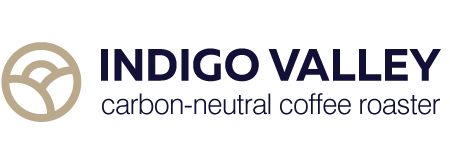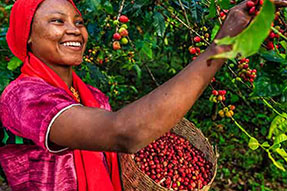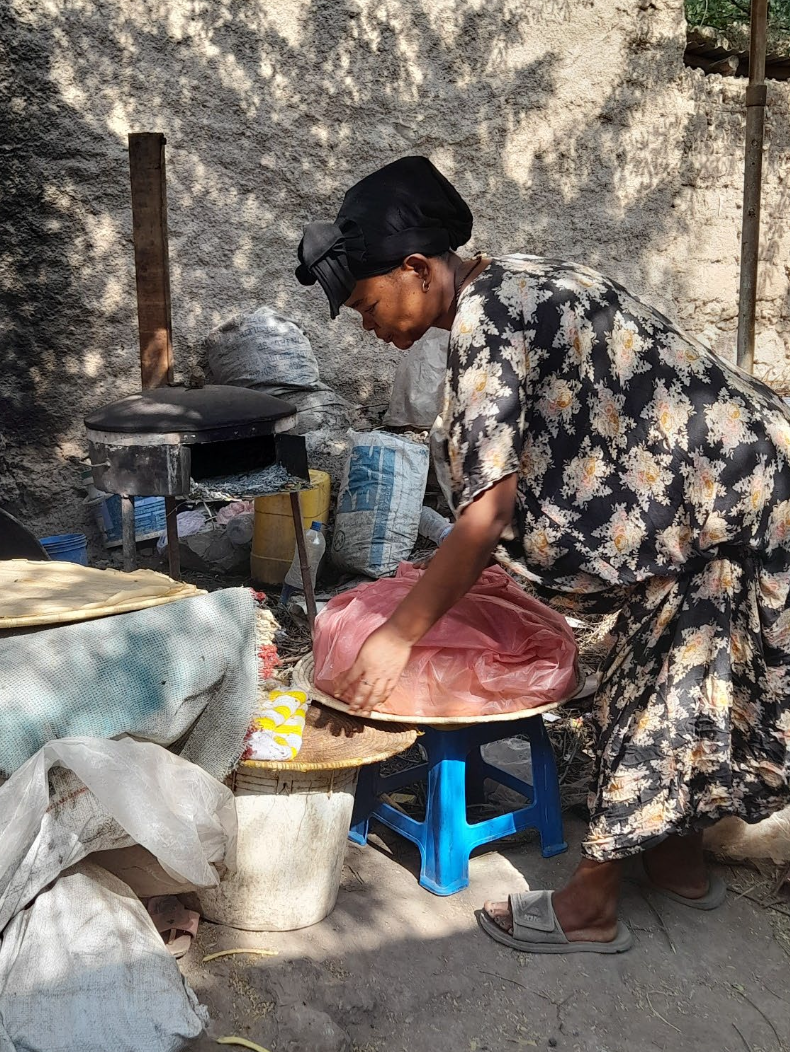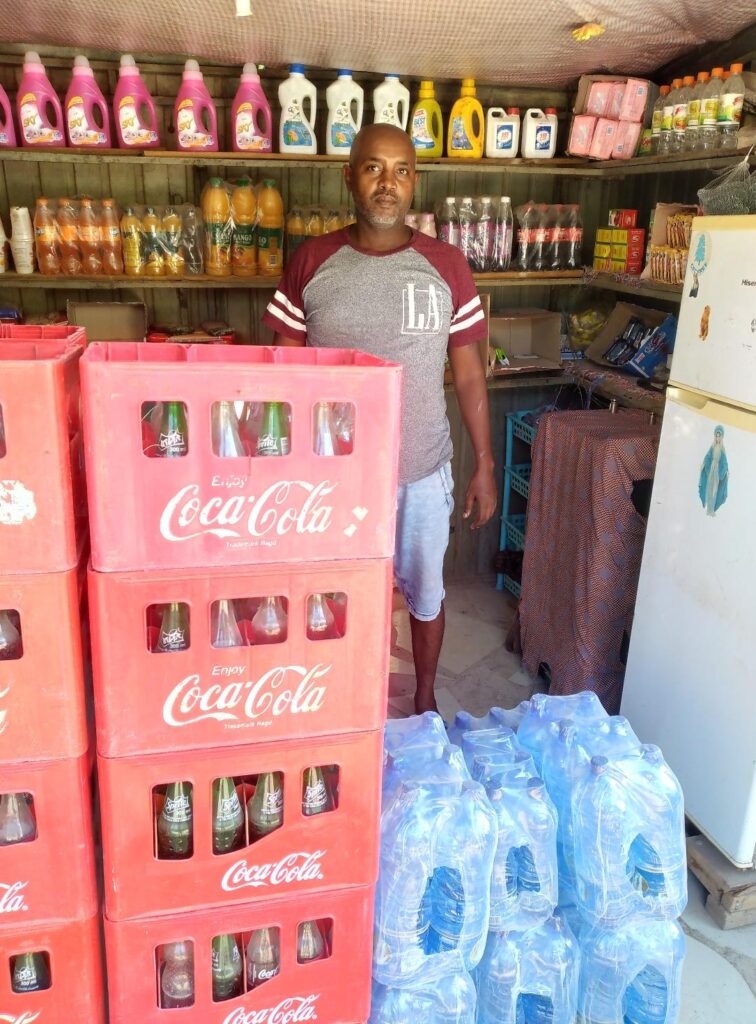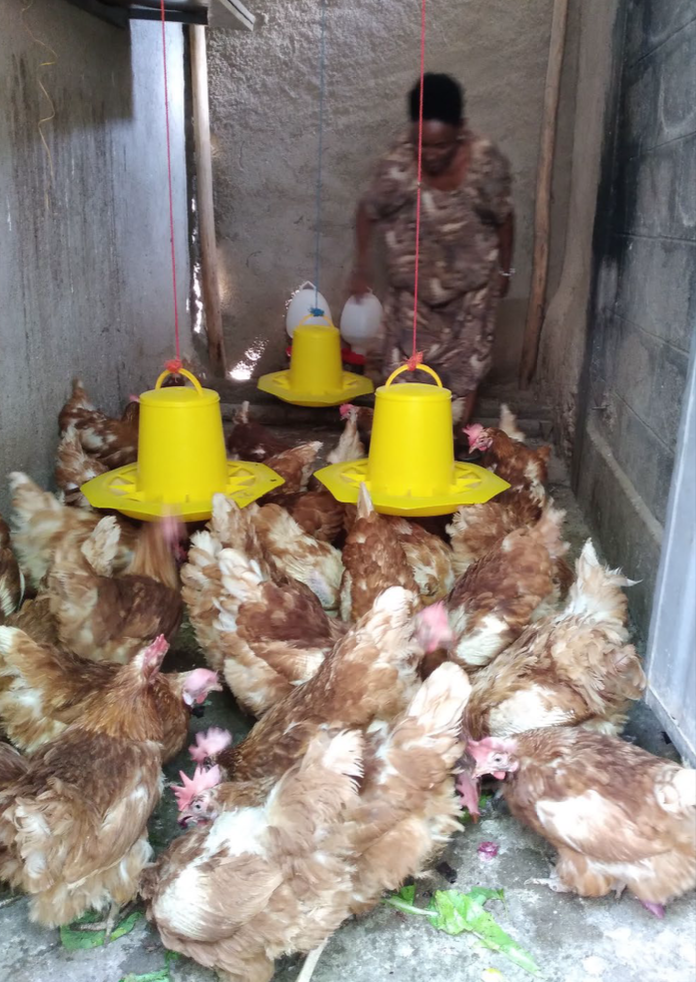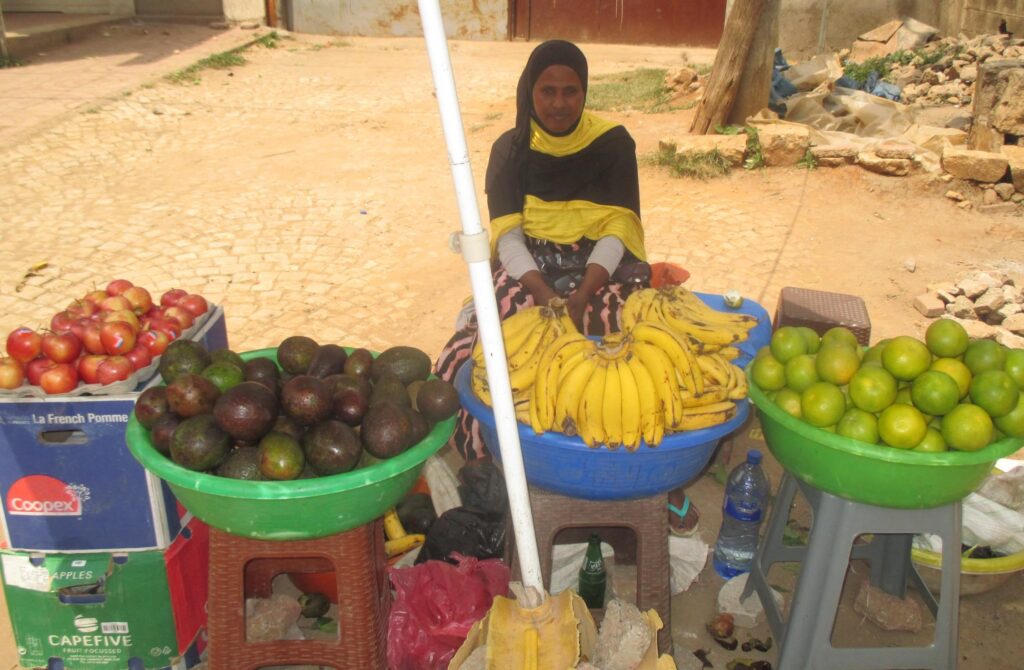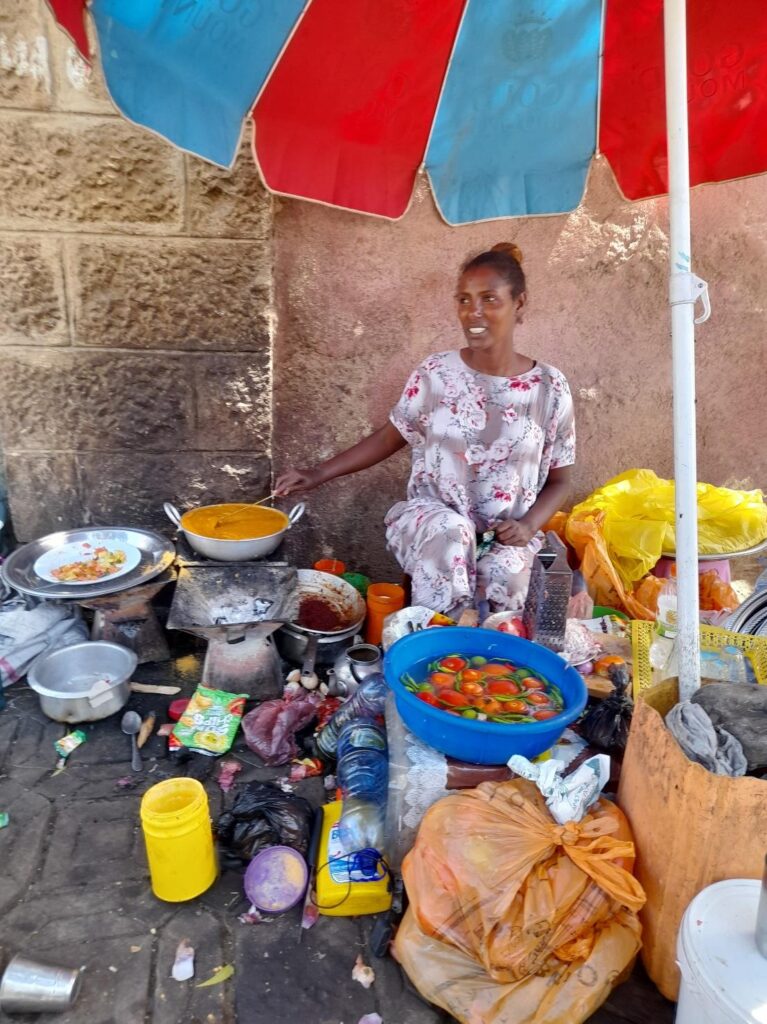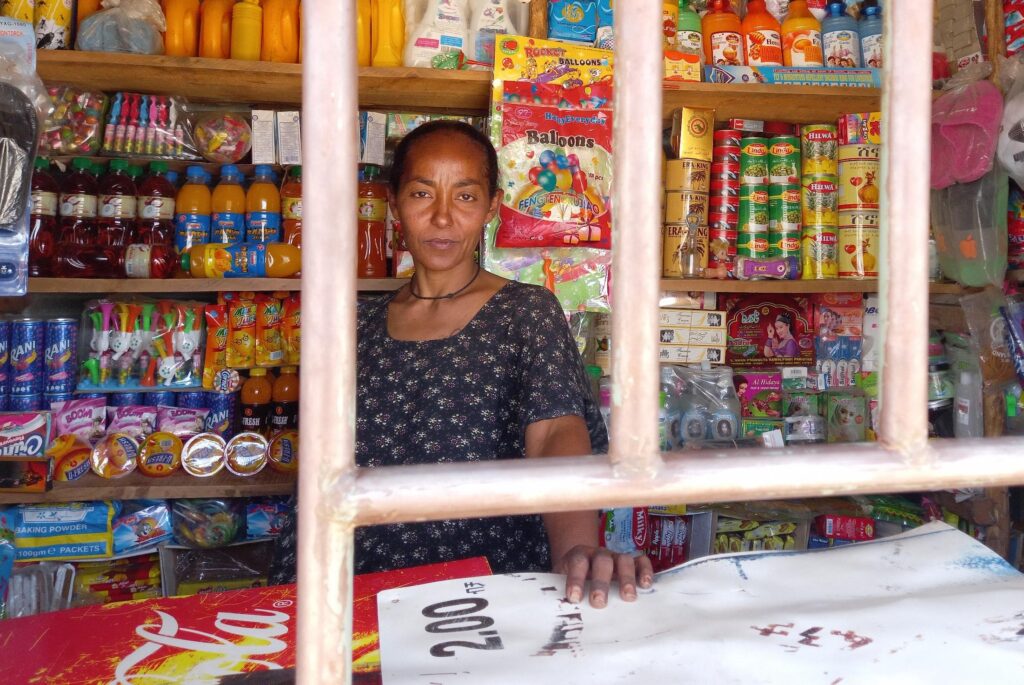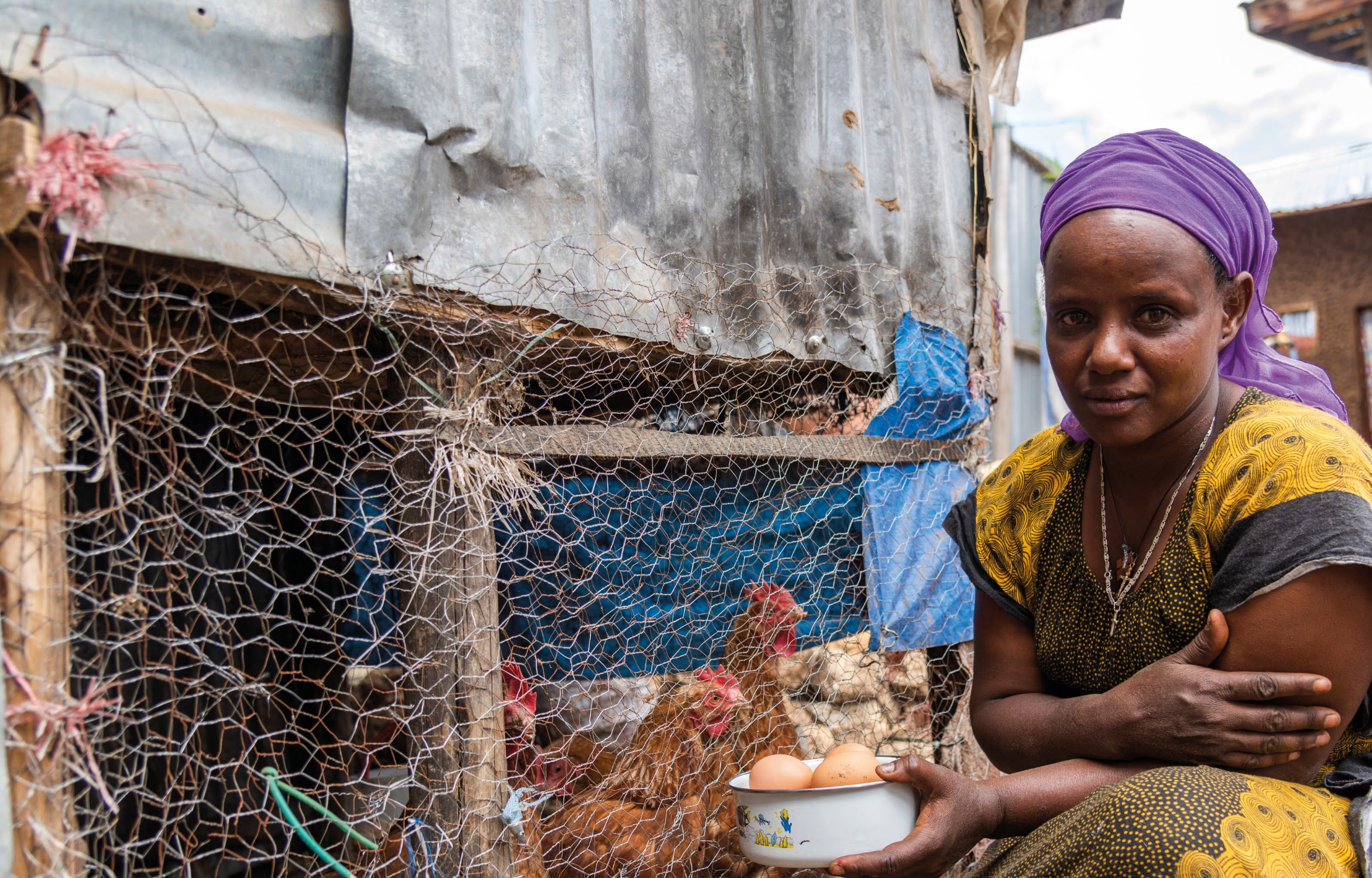
HOW OUR COFFEE TRANSFORMS LIVES IN ETHIOPIA
Overcoming extreme poverty
We’re passionate about making a meaningful difference in the coffee-growing communities worldwide. Coffee is often cultivated in remote tropical regions which poses unique challenges to these communities. That’s why we’re proud to support Compassion’s intervention projects to empower children and families in regions grappling with extreme poverty.
Since 1993, Compassion has been a driving force in Ethiopia, the birthplace of coffee, transforming countless lives and futures. Our recent support has fuelled Compassion’s efforts, empowering 863 family caregivers from their child development centres to break the cycle of poverty and become self-sufficient.
In our ongoing commitment to transparency, we’ve included additional testimonies in this update, showcasing the tangible impact that our coffee sales have had on supporting Compassion’s initiatives.
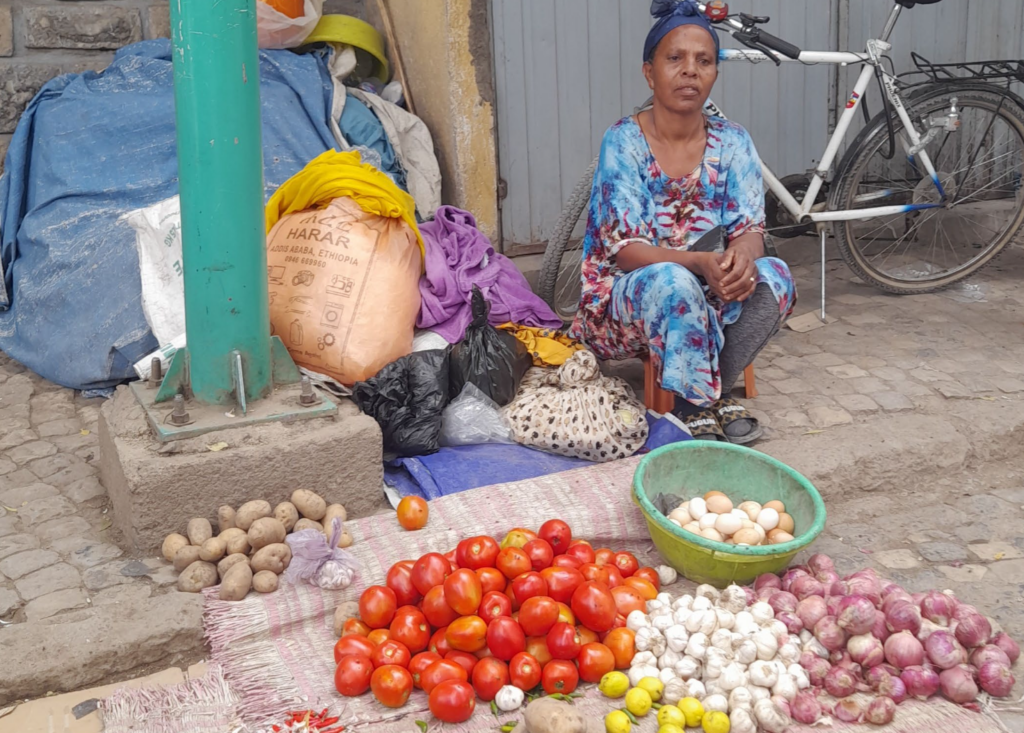
market in Dire Dawa community.
THE PROBLEM
CHILDREN ARE BORN INTO POVERTY
In regions marked by severe poverty, parents and caregivers often find themselves trapped in a relentless cycle of deprivation. The lack of resources and financial constraints leave them unable to afford education or kick-start their own businesses. Trapped in this cycle, children growing up in poverty face insurmountable challenges, perpetuating a cycle of day-to-day deprivation with no apparent means of escape.
THE INTERVENTION
INCOME GENERATION TRAINING
Empowering caregivers with startup funds and training to initiate their own small businesses goes beyond financial assistance; it lays the foundation for a sustainable income source benefiting both them and their families. This initiative not only equips individuals with practical skills but also fosters empowerment, paving the way for lasting success.
THE PURPOSE
BREAKING THE POVERTY CYCLE
Once families engage in Compassion’s programs and establish a successful business, the generated income becomes a powerful resource. Their income can be reinvested into their children’s education and expanding their enterprise. This not only ensures a stable source of income but also empowers parents to save and adequately meet their family’s needs, ultimately breaking the cycle of extreme poverty.
THE OUTCOME
EMPOWERING FAMILIES
In November 2020, conflict erupted in northern regions of Ethiopia, casting a shadow of instability across the country. Through our coffee sales, we’ve been able to empower families, fostering self-sufficiency. This, in turn, enables children to prioritise their education, paving the way for a future where they can either run their own businesses or secure employment, offering a ray of hope during these challenging times.
Small loans making a big impact
The Centre Director of Harar Kalehiwot Child Development Centre reports a noticeable enhancement in the quality of life and income within the community, attributing it to the positive reputation gained by the church among residents and government officials. This transformative intervention has significantly contributed to poverty reduction and the promotion of self-sufficiency.
Take Ms. Alemtsehay, for instance, the mother of Edelawit. With an initial investment of 9750 ETB (£136) through the Self-Help Group, she embarked on the establishment of a mini hotel. Before, Ms. Alemtsehay lacked a consistent source of income; now, she not only successfully covers the rent for her business premises but also maintains her residence.
She has been able to allocate funds towards the education of her children. Ms. Alemtsehay now meets the basic needs of her family and has managed to set aside 300 ETB (£4.19p) per month for savings. The opening of the mini hotel has not only provided her with a stable source of income but has also paved the way for her to achieve financial stability and secure her family’s future.
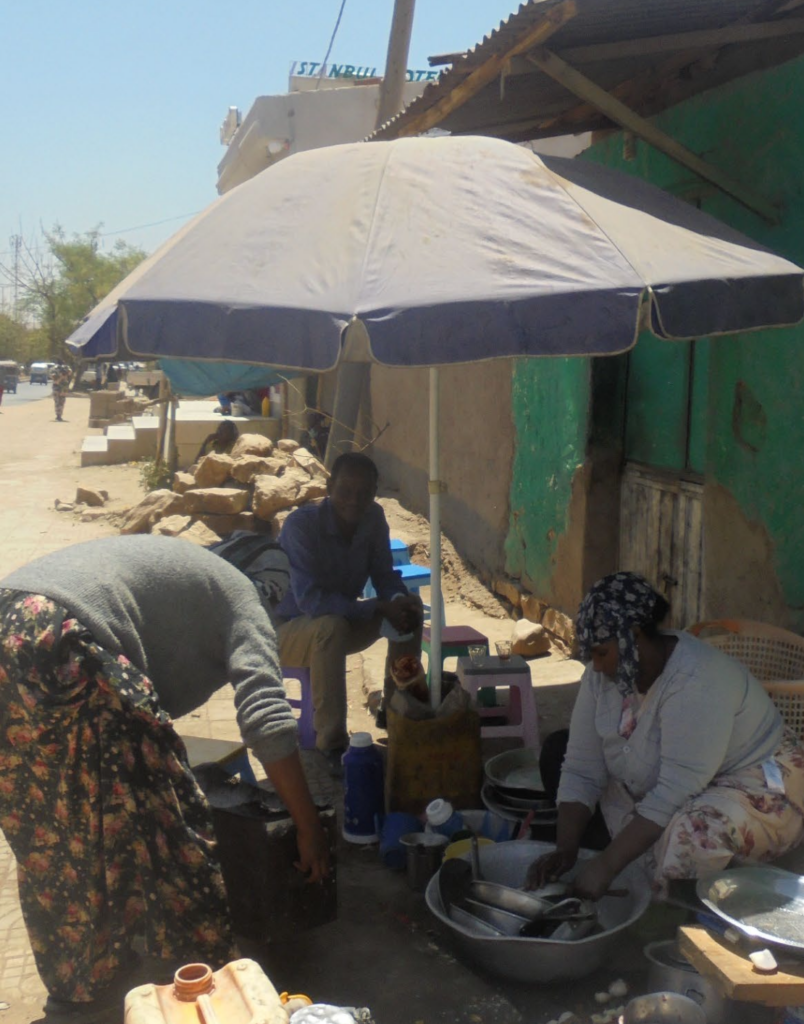
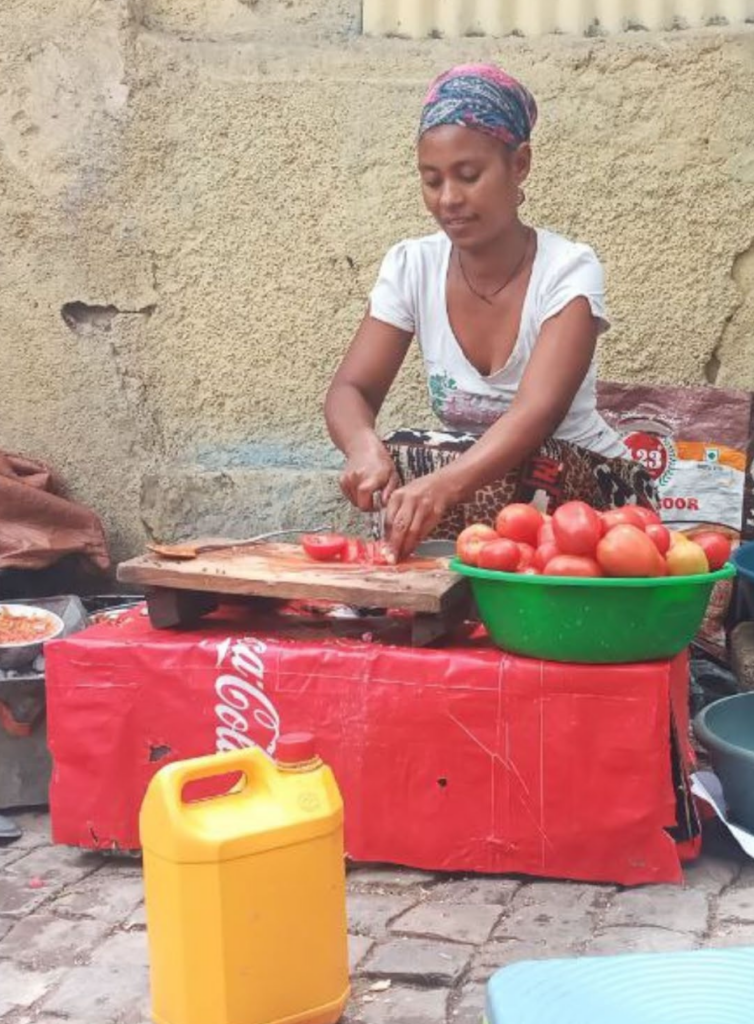
are few and far between.
Enabling families to thrive
Bizuye has thrived with support from Compassion’s intervention programmes. Before the intervention, Bizuye relied on selling spices at the marketplace, facing the challenges of inconsistent and low earnings. This struggle extended to covering her rent and meeting other basic family needs.
She now earns a monthly income of 2,500 ETB (£35), allowing her to afford not only the basics but also extras like clothing, food items, school supplies, and house rent. The intervention has ushered in a positive change, offering stability and improved living conditions for Bizuye and her family.
Those benefiting from financial assistance are driven to improve their families’ lives through their small businesses, paving the way for a more promising future.
The impact of our coffee is more than just a delightful brew—it creates tangible differences in the lives and dignity of families in regions battling extreme poverty. These stories are just a glimpse; we’ve already helped to assist 863 families in Ethiopia during challenging times marked by civil unrest and the long-term effects of COVID-19.
Progress being made
Before the introduction of these loan and training programs, parents and caregivers in communities supporting local children struggled to afford even the most essential items for schools and the dining table, treating them as luxury items. Despite their resilience, the notion of saving money seemed like a distant dream for these families.
The impact of these programs has been profound, safeguarding lives and futures across Ethiopia. They’ve instilled skills and confidence in caregivers, assuring them that success in supporting their families is attainable. Now, the once-distant dreams of putting away monthly savings, buying clothes, providing ample food, and supplying their children with school essentials have become a tangible reality. This empowerment is not just a dream; it’s a catalyst for thriving communities.
Through your support of Indigo Valley coffee, you are actively contributing to the transformation of lives in regions battling extreme poverty! Read the full January 2024 project update, CLICK HERE >
Our partnership with Compassion:
– Find out more about Compassion’s work in Ethiopia click here >
– Buy coffee for home to support Compassion’s work click here >
– Read our interview with Compassion click here >

Interested in more?
Looking for more articles about coffee and coffee equipment from Indigo Valley? Why not view our archive of posts and articles for everything you need to know about coffee.
